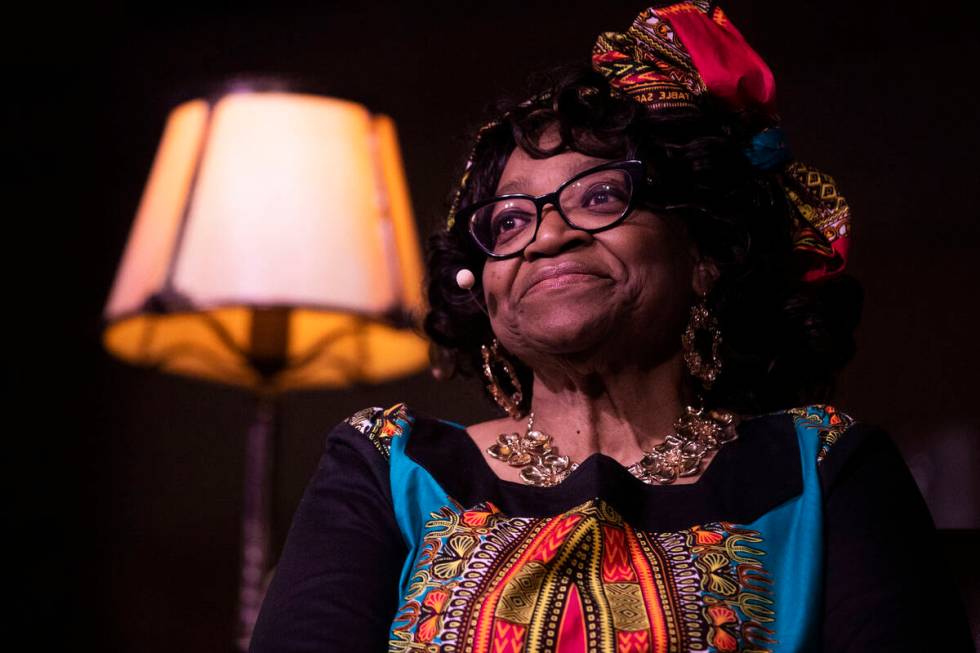’Nevada’s Black Legal Trailblazers’ fill panel at Mob Museum

Today’s law school students study Brown v. Board of Education, but Johnnie Rawlinson lived it.
Rawlinson was one of the first Black students who integrated her high school in North Carolina following the Supreme Court’s ruling in 1954 banning segregation in public schools. By the time Rawlinson went through law school and moved to Nevada, she was one of two Black women licensed to practice law in the state.
Her experiences with racism and segregation now make her a well-rounded judge on the 9th U.S. Circuit Court of Appeals, Rawlinson said Tuesday night during a panel discussion at the Mob Museum.
“I think that one of the things that I bring to the court that many of them have not lived through is the racism experienced by us virtually on a daily basis,” she said.
The museum hosted the “Leaders In Law: Celebrating Nevada’s Black Legal Trailblazers” panel on Tuesday in honor of the start of Black History Month. With Rawlinson, the speakers were retired Nevada Supreme Court Justice Michael Douglas, Las Vegas City Attorney Bryan Scott and Clark County District Judge Tim Williams.
Rawlinson and Douglas recalled instances in their careers when judges were dismissive of them. For Rawlinson, it was a visiting judge from a rural county calling her “uppity.” Douglas said that shortly after he passed the bar exam in the early 1980s, a judge didn’t believe he was a lawyer.
Douglas was licensed in 1983 with four other Black attorneys. At the time, it was the largest group of Black attorneys who had passed the bar.
When he was appointed to the Supreme Court, he was the first Black justice to serve in Nevada.
“Things change, but they can still get better,” Douglas said.
When Scott was promoted to city attorney in 2020, he became the first Black attorney to serve as Las Vegas’ top lawyer. He also was the only person of color working as an attorney in the office. Since then, he has hired two Black women to serve as attorneys to make his staff more reflective of the community.
“I felt it was my obligation at this point to stay and do everything I could to diversify the office, to put it back on the right track so that we could then do justice,” Scott said.
While Rawlinson spoke, she also mentioned President Joe Biden’s pledge to nominate the first Black woman to the U.S. Supreme Court, and like the president, Rawlinson said it was “long overdue.”
She said she personally knows two of Biden’s prospective picks — U.S. District Judge J. Michelle Childs and U.S. District Judge Ketanji Brown Jackson — and finds it “unfathomable” for people to question their qualifications.
“They happen to be African American women, but they’re all very qualified to sit on the Supreme Court,” she said.
After the panel discussion, Rawlinson told the Las Vegas Review-Journal that her name is not being considered for the position. She was considered during President Barack Obama’s terms but said: “The time has passed me by.”
“Now they’re looking for people who are a little less seasoned than I am, and I understand that,” she said.
President Bill Clinton appointed Rawlinson to the U.S. District Court bench in Nevada in 1998 and then to the 9th Circuit bench in 2000. The appeals court is based in San Francisco.
A previous version of this article misstated where 9th U.S. Circuit Court of Appeals Judge Johnnie Rawlinson went to high school.
Contact Katelyn Newberg at knewberg@reviewjournal.com or 702-383-0240. Follow @k_newberg on Twitter.